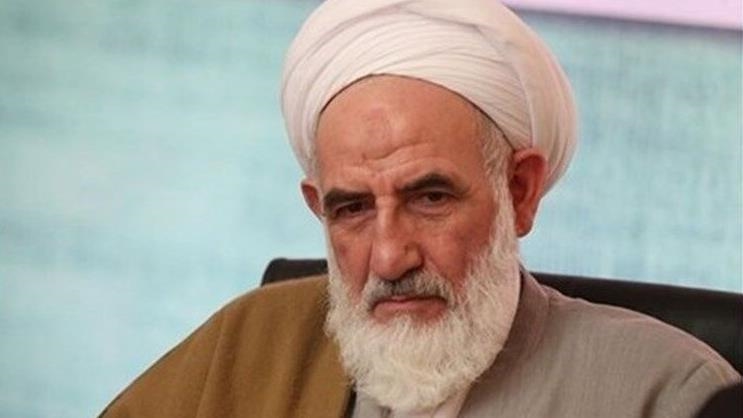Iranian President Ebrahim Raisi has called for a prompt investigation into the killing of senior cleric Ayatollah Abbas Ali Soleimani, who was shot dead by a security guard inside a bank in the city of Babolsar in the northern province of Mazandaran on April 26.
“It is necessary for security and law enforcement forces to act as quickly as possible regarding the causes of the accident, and also to identify the possible motive of the perpetrator or perpetrators,” President Raisi said in a statement.
According to the governor of Mazandaran, Mahmoud Hosseinipour Nouri, the attacker was a local man who was one of several armed guards employed by a security contractor to protect the bank. While the police’s investigation into the shooting is ongoing, the authorities have ruled out terrorism as a motive. Iranian Prosecutor General Mohammad Jafar Montazeri has ordered an investigation into the killing and urged the prosecutor general for Mazandaran Province to coordinate with law enforcers.
Ayatollah Soleimani held a position as one of the 88 clerics in the Assembly of Experts responsible for appointing the Supreme Leader. This elected body has the power to oversee the performance of the Supreme Leader and potentially remove him if he is found to be unable to fulfill his duties.
In addition, Soleimani had previously served as the personal representative of Ayatollah Ali Khamenei, the current Supreme Leader, in the restive province of Sistan-Baluchestan. After serving in this role for 17 years, he resigned in 2019. He also served as the Friday prayer leader in the central city of Kashan between 2020 and 2022.
Soleimani was known for his opposition to dissident political-militant organization, Mojahedin-e-Khalq (MEK). MEK carried out a wave of bombings in Iran and struck an alliance with Saddam Hussein during the 1980-88 Iran-Iraq war. This reportedly led to Ayatollah Khomeini, then the Supreme Leader, ordering a series of mass executions of political prisoners, beginning in July 1988 and lasting for approximately five months. The executions occurred in over 32 cities throughout Iran, with estimates of 2,500 to 30,000 individuals killed, many of whom were subjected to torture. While the majority of those executed were supporters of the MEK, individuals supporting other leftist factions, including the Fedaian and the Tudeh Party of Iran (Communist Party), as well as some Kurdish groups, such as Komala and the Kurdish Democratic Party of Iran, were also among the victims.
According to the London-based agency Iran International, Soleimani wrote in his autobiography that he was appointed Friday prayers imam of Babolsar so that he could confront opposition groups’ activities there.
Last April, two Iranian clerics were killed and a third was injured in a knife attack at a shrine in the north-eastern city of Mashhad. An ethnic Uzbek man was hanged in June after being found guilty of carrying out the stabbings, for which police did not reveal the motive.







 Iran's senior military leaders described the drone and missile attack on Israel on April 14 night as “successful".
Iran's senior military leaders described the drone and missile attack on Israel on April 14 night as “successful".
 The number of evacuees from flooded areas in Kazakhstan has reached 97,852 people, including about 32,856 children since March 27.
The number of evacuees from flooded areas in Kazakhstan has reached 97,852 people, including about 32,856 children since March 27.
 Azerbaijan officially unveiled the logo for the upcoming 29th session of the Conference of the Parties to the United Nations Framework Convention o...
Azerbaijan officially unveiled the logo for the upcoming 29th session of the Conference of the Parties to the United Nations Framework Convention o...



